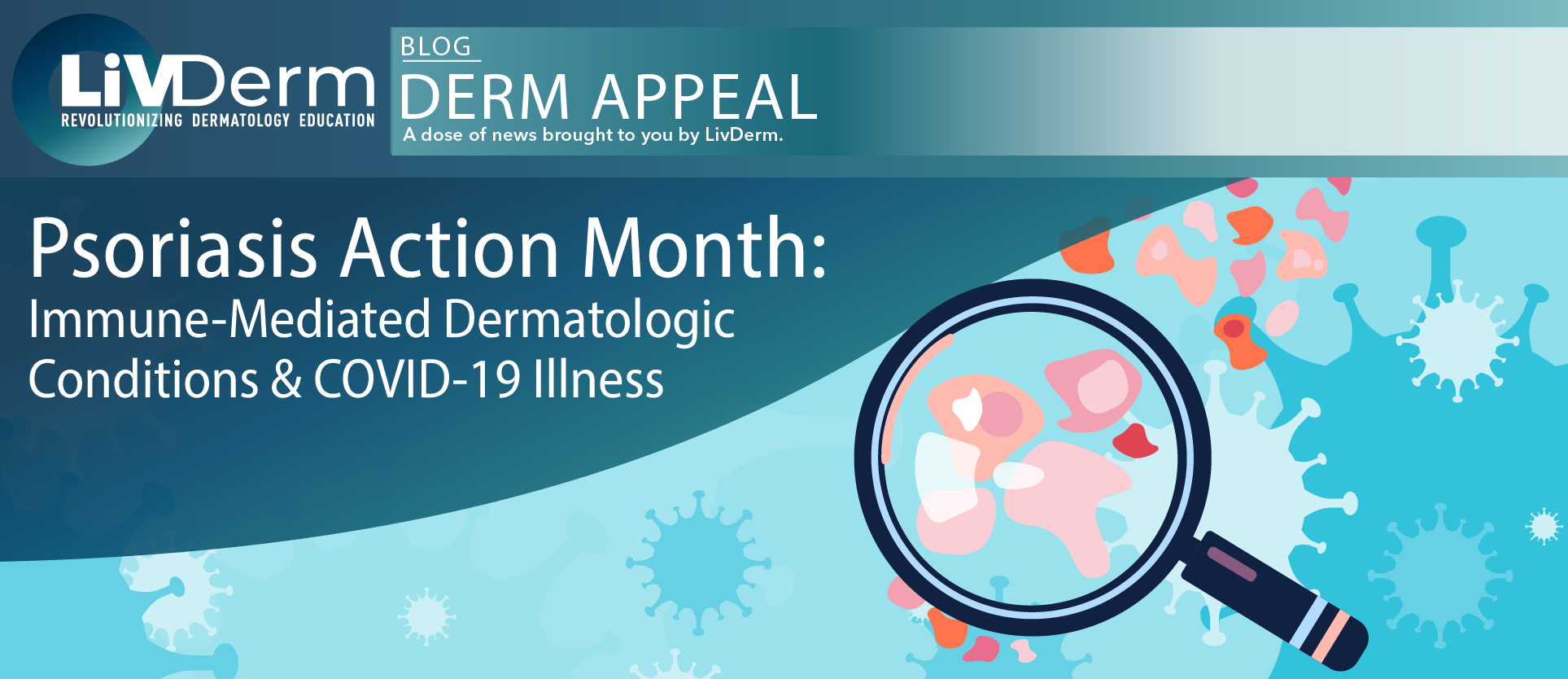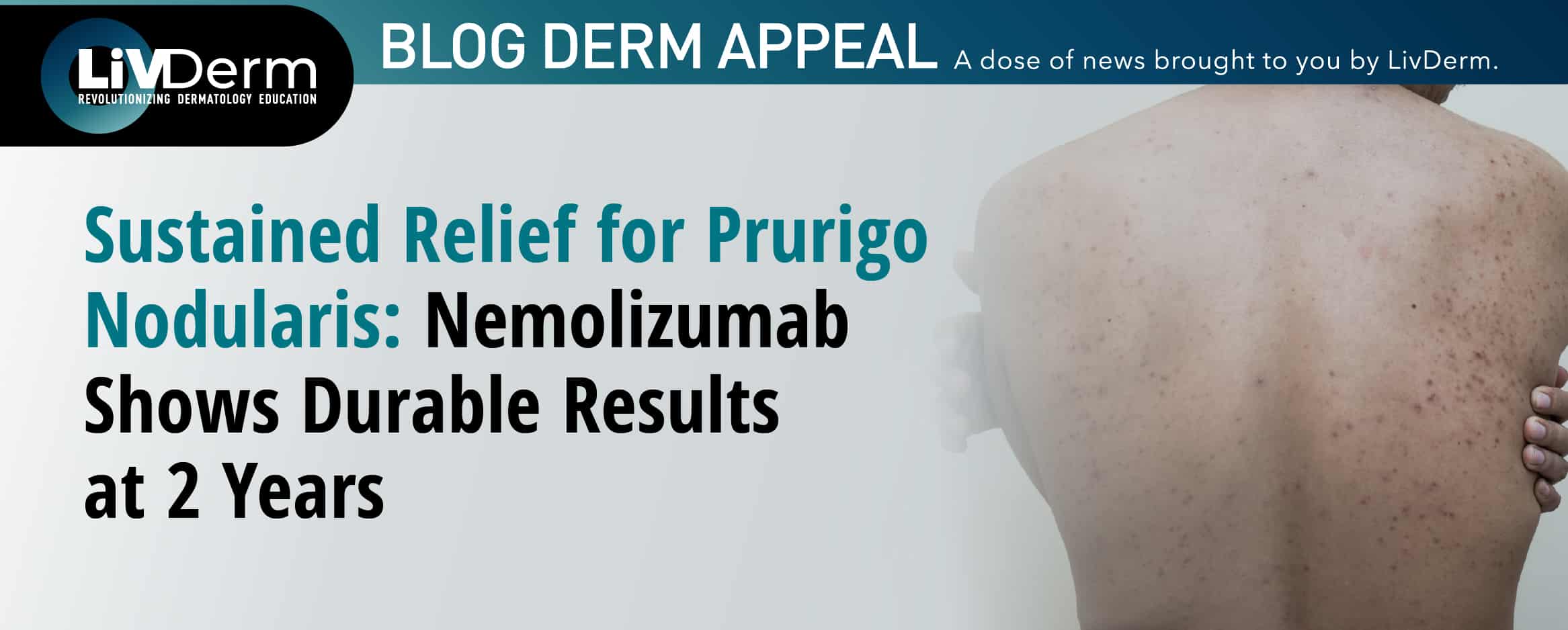August marks the beginning of Psoriasis Action Month, an observance organized by the National Psoriasis Foundation which aims to support patients with the common skin condition while promoting awareness and furthering efforts to find a cure for psoriatic disease.
While the coronavirus continues to evolve and research efforts attempt to keep up with its changing manifestations, the impact of COVID-19 on the medical industry remains profound. In the earlier stages of the pandemic, the dermatologic community faced concerns over whether there were increased risks associated with the immunomodulatory medications prescribed to patients with conditions such as inflammatory skin disorders. However, scientific evidence and data gathered from prior coronavirus outbreaks implicates that patients with psoriasis, atopic dermatitis, and hidradenitis suppurativa may not face a heightened risk for severe forms of COVID-19 illness
A recent study published in the American Journal of Clinical Dermatology examined the available evidence to determine the impact of cutaneous immune-mediated diseases and their treatment strategies on COVID-19 illness, revealing that these conditions may not heighten risks of severe illness after all.
COVID-19 and Cutaneous Immune-Mediated Diseases
Despite its relatively lower severity and mortality rates than prior human coronavirus infections, COVID-19 can result in severe cases caused by dysfunctional and excessive innate immune reactions. Although in the majority of cases the immune response effectively clears the virus, a subgroup of patients may experience exaggerated reactions leading to inflammatory-induced lung injury, pneumonitis, acute respiratory distress syndrome, respiratory failure, shock, organ failure, and even death.
Due to the crucial role of the immune response in COVID-19 disease progression, the management of certain skin conditions with biologic medications initially required reevaluation. Psoriasis, atopic dermatitis, and hidradenitis suppurativa are among the cutaneous immune-mediated diseases which are often managed with biologic and non-biologic immunosuppressive or immunomodulatory agents.
Most recommendations from aesthetic medicine experts and associations suggested postponing the prescription of immunosuppressive drugs during the virus outbreak, temporarily discontinuing their use in cases of active COVID-19 infection, and the use of caution with such therapies in vulnerable patient demographics. However, the decision to stop or withhold treatment has been largely left to the consideration of physicians and their patients with an emphasis on weighing the risks and benefits of each case on an individual basis.
However, the latest research reveals there is no available evidence supporting the need for discontinuing biologic treatment of psoriasis in most patients simply due to the risk of infection. According to the study, rates of nasopharyngitis and upper respiratory tract infections in psoriasis patients on taking biological agents are similar to control subjects.
Management Strategies
Led by Tiago Torres, MD, PhD, the latest study analyzed available data on past and present coronavirus outbreaks to evaluate management strategies for cutaneous immune-mediated conditions in light of COVID-19. The research implicates that immunosuppressed patients do not face an increased risk for severe disease and complications compared with the general population and that immunosuppressive and immunomodulatory drugs may even have the potential control the “cytokine storm” which is related to poorer health outcomes in that subgroup of patients.
As with SARS-CoV and MERS-CoV, immunosuppression has not been found to be a risk factor for adverse outcomes in patients with COVID-19 infection compared with the general population, according to the researchers. Per the latest study, patients suffering from cutaneous immune-mediated diseases are able to continue their current treatment plans without additional risk.
“In the future, SARS-Cov-2 vaccination will most likely be added to the immunization recommendations for patients receiving immunosuppressive or biologic treatment for dermatologic indications, including psoriasis, atopic dermatitis, and hidradenitis suppurativa,” the researchers concluded.
In cases of psoriasis and other cutaneous immune-mediated diseases, preventing symptom flareups can greatly decrease patient burden and prevent disability while improving patient quality of life and optimizing healthcare usage at this time. Although additional research is required to validate these findings, evidence is emerging that symptoms of the exaggerated immune response involved in COVID-19 disease progression may be in some way controlled through the use of immunosuppressant or immunomodulatory agents. However, the nature of this evidence remains preliminary and should not provide a basis for clinical evaluation.
















